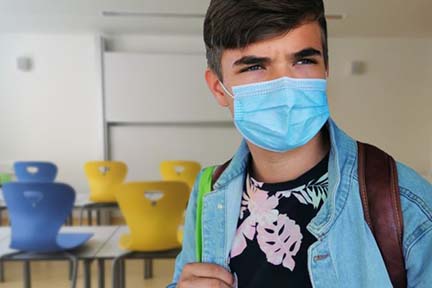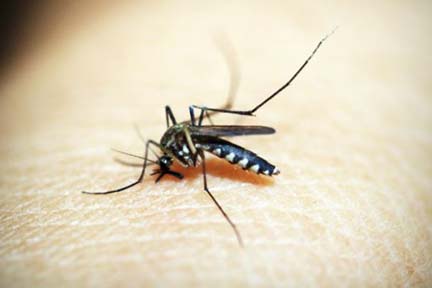
by Becky Andrus | Sep 16, 2021 | Health and Wellness

FOR IMMEDIATE RELEASE: Sept. 16, 2021
CONTACT: Bob Wheaton, 517-241-2112, wheatonb@michigan.gov
Event to raise funds for child abuse, neglect prevention statewide
Michigan Children’s Trust Fund 19th annual Pam Posthumus Signature Auction set for Sept. 28
LANSING, Mich. – Child abuse and neglect prevention supporters can make a difference in the lives of Michigan children and families by taking part in the 19th annual Pam Posthumus Signature Live Virtual Auction Event Tuesday, Sept. 28 at 7 p.m.
People can help fund child maltreatment prevention programming in all of Michigan’s 83 counties by bidding on sports and concert tickets, travel packages and more.
The event seeks to raise $500,000 in critical funds for the Children’s Trust Fund, which is within the Michigan Department of Health and Human Services. Money raised from the auction pays for programs such as food pantries, safe sleep, shaken baby syndrome prevention, child development support, adverse childhood experiences prevention and more. Additionally, it supports other targeted services that allow local partners around the state to continue to provide education, training, and other child abuse and neglect prevention programs. All private donations and state funding is eligible to be multiplied through Children’s Trust Fund federal funding.
“The Pam Posthumus Signature Auction is a sign of hope for Michigan’s children and families,” Children’s Trust Fund Executive Director Suzanne Greenberg said. “The funding raised through this auction helps strengthen families and communities across the state by educating and supporting them on child safety, health and well-being. Child abuse and neglect is preventable when we work together, and I encourage Michiganders to support this crucial event for kids.”
The auction is named in memory of Pam Posthumus, a tireless advocate for preventing child abuse. Posthumus was appointed to the Children’s Trust Fund Board of Directors in 1997 and became its chair in 2002. The event is made possible by the generosity of the state of Michigan, Michigan Legislature and sponsors such as Cinnaire, DTE, Jackson, and countless other organizations and individuals.
To register for the event or donate, visit https://CTFAuction.cbo.io
To learn more about Children’s Trust Fund (and to learn where the program is near you) and its efforts to end child abuse, visit michigan.go/CTF.
# # #
ABOUT the Children’s Trust Fund Created by the Michigan Legislature in 1982, the Children’s Trust Fund is Michigan’s only statewide nonprofit organization solely dedicated to the prevention of child abuse and neglect. The Children’s Trust Fund serves as a voice for Michigan’s children and families and promotes their health, safety and welfare by funding effective local programs and services that prevent child abuse and neglect.
|

by Becky Andrus | Sep 9, 2021 | Health and Wellness
Troy, MI – September 8, 2021
FREE ONLINE NARCAN TRAININGS
Join the Alliance for a free online class to assist you with the administration of Narcan should you be faced with saving a life during an opioid overdose emergency.
This interactive class, presented by a Certified Narcan & CPR Trainer from the Alliance, will take 1 hour and a Save A Life Narcan Kit will be mailed directly to you once essential forms have been completed.
The training includes information on:
- Signs and symptoms of an opioid overdose
- Quick actions to take to help save a life and reverse a potential opioid overdose
- How to easily and properly use Narcan nasal spray
- Resources sharing
- If you use your Narcan, how you can obtain a refill
Virtual Save A Life FREE Narcan Trainings are every:
Upon completion, participants will have their Narcan mailed to them directly.
All trainings can be found at http://achcmi.org/training/narcan-training-save-a-life/ or on the Alliance calendar http://achcmi.org/events/
September 12th – 12:00 pm – 1:00 pm – Free Walk Up Naloxone Training – Clawson City Park (Pavilion) – 935 N. Custer Ave., Clawson, MI 48017. Join the Alliance of Coalitions for Healthy Communities, the Clawson Community Coalition and the Clawson Police Department for a FREE Walk Up Naloxone Training.
September 14th – 7:00 pm – 8:30 pm – Free Virtual Naloxone Training. Join the Alliance of Coalitions for Healthy Communities, the Madison Heights Community Coalition and the Madison Heights Police and Fire Departments for a FREE Virtual Naloxone Training.
https://us02web.zoom.us/webinar/register/WN_BpoCXEAuR12HbZMvsk-IeQ
September 16th – 7:00 pm – 8:00 pm & September 18th – 5:00 pm – 6:00 pm
Free Naloxone Training – Troy Civic Center (Troy Daze Event) – 500 W. Big Beaver Rd., Troy, MI 48084. Join the Alliance of Coalitions for Healthy Communities for a FREE Naloxone Training.
DRIVE UP NARCAN TRAININGS
Join the Alliance for Drive Up Narcan Trainings. We are meeting our communities right where they are by providing this unique training opportunity for all who drive up to this event.
September 19th – 1:00 pm – 3:00 pm – 6773 W. Maple Rd., West Bloomfield Township, MI 48322. Join the Alliance of Coalitions for Healthy Communities, Greater West Bloomfield Community Coalition, Tri-Community Coalition, Henry Ford West Bloomfield Hospital and Maplegrove Center, Jewish Addiction Resource Alliance, and the West Bloomfield Fire Department as we conduct a Drive Up Narcan Training.
Alliance of Coalitions for Healthy Communities, founded in 2004, is a 21 coalition prevention partnership based in Oakland County and predominantly funded by Oakland Community Health Network. The Alliance also provides five Shatter the Stigma Support Groups throughout Oakland County and free Narcan trainings. Through substance abuse prevention, mental and physical wellness, and recovery support programs, the Alliance connects, strengthens, and mobilizes strategic partners to promote healthier communities. www.achcmi.org

by Becky Andrus | Sep 9, 2021 | Health and Wellness
|
Press Release
FOR IMMEDIATE RELEASE: Sept. 9, 2021
CONTACT: Lynn Sutfin, 517-241-2112, [email protected]
MDHHS launches online access to immunization
records for Michiganders ages 18 and older
LANSING, Mich. – To help Michiganders ages 18 and older more easily access their immunization records, the Michigan Department of Health and Human Services (MDHHS) has launched the Michigan Immunization Portal.
Michigan adults with immunization records posted in the Michigan Care Improvement Registry (MCIR), including COVID-19 vaccination, will be able to locate their own record online and download, save or print this information. The portal was funded through CDC grant dollars and was officially launched in mid-August.
“We want to make sure Michiganders are able to access their vaccination records as easily as possible as this is important health information,” said Elizabeth Hertel, MDHHS director. “The Michigan Immunization Portal allows them to find their record from their computer or smart phone and save a copy for their records. This will also allow anyone who has misplaced their COVID-19 vaccination card to print a record of their vaccination.”
To ensure privacy and that individuals are only able to access their own immunization records, Michiganders must create a MILogin account at Michigan.gov/MiImmsportal and upload a valid government issued photo ID such as a driver’s license, state ID or passport. There is no cost to access the portal.
Immunizations provided in another state or country may not be included in an individual’s record in the portal. If an individual’s immunization record can’t be found, records can still be requested from a physician’s office or local health department.
As the portal is only available for those 18 years or older, parents won’t be able to download their child’s immunization records. Parents may contact their child’s physician’s office or local health department to get a copy of their immunization records. |

by Becky Andrus | Sep 8, 2021 | Health and Wellness
|
Press Release
FOR IMMEDIATE RELEASE: Sept. 8, 2021
CONTACT: Chelsea Wuth, 517-241-2112, WuthC@michigan.gov
Governor Whitmer declares September as Alcohol and Drug Addiction Recovery Month
LANSING, Mich. — The Michigan Department of Health and Human Services (MDHHS) and Gov. Gretchen Whitmer are declaring September as Alcohol and Drug Addiction Recovery Month, and joining with community networks to celebrate recovery and raise awareness of recovery-oriented systems of care working to prevent and treat substance use disorders in our state.
“Like other chronic and relapsing diseases, such as diabetes, asthma or heart disease, substance use disorder can be managed successfully,” said Governor Whitmer. “This Alcohol and Addiction Recovery Month, we recommit ourselves to providing Michiganders struggling with substance use disorders with multiple points of care — from expanded telehealth services to medication assisted therapies. When Michiganders with mental health or substance abuse disorders seek help, they deserve to be met with the knowledge and compassion that anyone can recover and manage their conditions successfully.”
Substance use disorder is a chronic, often relapsing brain disease that causes compulsive drug seeking and use, despite harmful consequences to the individual and those around them. The United States is amid an opioid epidemic, with opioid overdoses killing nearly 48,000 people per year. An opioid can be a prescription drug, or an illicit substance, such as heroin. The use of tobacco, alcohol, prescription opioids and illicit drugs is costly to our nation, exacting approximately $820.5 billion dollars annually, and growing, in costs related to crime, lost work productivity and health care.
In the long-term, substance use disorder may lead to mental and physical effects such as paranoia, psychosis, immune deficiencies and organ damage that will require treatment to resolve. In 2019, over 1.3 million people in Michigan, age 12 and older, had abused an illicit drug in the past month and 615,000 individuals aged 12 and older in Michigan needed treatment for illicit substance or alcohol use – 7.3 % of the population.
“Recognizing Alcohol and Drug Addiction and Recovery Month allows us to celebrate those who have successfully been able to manage their disease and also highlight the need to provide resources, dignity and treatment to those who are affected by a substance use disorder,” said Dr. Joneigh Khaldun, MDHHS chief medical executive and chief deputy for health. “It’s important to educate Michiganders on how recovery is possible, welcomed and celebrated not just in the present but for the rest of their lives.”
A person’s treatment and recovery are built on his or her strengths, talents, coping abilities, resources and inherent values. It addresses the whole person and their community, and is supported by peers, friends, and family members. Support for telehealth services has enabled thousands of Michiganders to engage safely in substance use disorder prevention, treatment and recovery support services that would have otherwise been inaccessible.
If you or a loved one is seeking care, visit MDHHS – BH Recovery & Substance Use (michigan.gov) or Michigan.gov/Opioids. |

by Becky Andrus | Sep 8, 2021 | Health and Wellness
|
Press Release
FOR IMMEDIATE RELEASE: Sept. 8 2021
CONTACT: Lynn Sutfin, 517-241-2112, SutfinL1@michigan.gov
MDHHS issues quarantine guidance for asymptomatic students
Prevention measures, including universal masking, reduce COVID-19
transmission and days away from school due to quarantine
LANSING, Mich. – To help ensure Michigan students and educators are as safe as possible in the classroom and keep students in school for in-person learning, the Michigan Department of Health and Human Services (MDHHS) has issued updated quarantine guidance.
“When layered prevention strategies such as masking, distancing, testing, isolation and quarantine are applied consistently, school-associated transmission of COVID-19 is significantly reduced – which keeps kids in the classroom so they can learn,” said Elizabeth Hertel, MDHHS director. “However, if someone is exposed to COVID at schools, it’s important for them to follow quarantine guidance to prevent spread to other children.”
MDHHS recommends local health departments and schools work together to quickly isolate COVID-19 cases among students and staff, identify close contacts of those cases and adopt quarantine policies that reduce the risk of transmission in schools while allowing in-person learning. When evidence-based prevention measures, including universal masking, are in place, modifications may be made to the 10- to 14-day at-home quarantine.
“The best protection against COVID-19 are the three safe and effective vaccines we have available, and we urge all eligible Michiganders to get vaccinated,” said Dr. Joneigh Khaldun, chief medical executive and chief deputy for health. “As many of our students are too young to be vaccinated, masks are an important tool to prevent the spread of the virus and allow for in-person learning to continue uninterrupted.”
School quarantine guidance for asymptomatic students who were exposed to a student infected with COVID-19 varies depending on a variety of circumstances. In all cases, the student who has tested positive for COVID-19 should isolate and follow directions from their local health department. Any individual that displays COVID-19 symptoms, regardless of vaccination status, should be tested and isolate as directed.
Under the new guidance, a student exposed to COVID-19 can remain in school under the following scenarios:
- A fully vaccinated student (regardless of whether they wore a mask) who came in close contact with a COVID-positive student. The exposed student can remain in school if they wear a mask and monitor symptoms for 14 days after their exposure. They should test for COVID-19 three to five days after their last exposure to the COVID-positive student. If the exposed student tests positive, then the student should isolate and follow directions from their local health department.
- An unvaccinated student who was masked and exposed to a COVID-positive student who was also masked in an indoor school setting, so long as the students remained at least three to six feet apart. The exposed student can remain in school if they wear a mask, but they should monitor symptoms for 14 days following the exposure.
- An unvaccinated student who was masked and exposed to a COVID-positive student who was also masked in an indoor school setting, but the students were less than three feet apart and the student tests daily.
- The exposed student can remain in school if they wear a mask. They should monitor symptoms for 14 days and test daily before coming into the school building for the seven days following the exposure. They should continue to monitor for symptoms for a total of 14 days following the exposure.
- The exposed student should work with their school district and local health department to determine options available for daily testing. If the student cannot complete daily testing for seven days following the exposure, the student should not remain in school and should follow the guidance below.
An unvaccinated student exposed to COVID-19 should not remain in school under the following scenarios:
- If the exposed or COVID-positive student, or both were not wearing a mask. Unvaccinated students who are unmasked are more likely to become ill because they are more likely to have been exposed to larger amounts of virus.
- The exposed student should not remain in school, and instead the student should quarantine at home for 10 days following the exposure.
- They may return after day 10 if they have not had any symptoms during those 10 days. They should continue to monitor for symptoms for a total of 14 days following the exposure.
- The student may return after day seven if they test negative that day and do not have symptoms. They should continue to monitor for symptoms for a total of 14 days following the exposure.
- A student who was masked and exposed to a COVID-positive student who was also masked in an indoor school setting, but the students were less than three feet apart and the student does not test daily.
MDHHS is providing schools antigen testing supplies free of charge through the MI Safe Schools Testing program. Schools and individual school districts can request antigen test kits through the Mi Safer Schools: School Antigen COVID Test Ordering form. MDHHS will be leveraging our partnership with Intermediate School Districts to help distribute COVID-19 antigen tests based on the orders placed in the School Antigen COVID Test Ordering Form. Questions about test supply orders can be sent to your Intermediate School District and any other school testing related questions can be sent directly to MDHHS at MDHHS-COVIDtestingsupport@michigan.gov
To learn more about the COVID-19 vaccine, visit Michigan.gov/COVIDVaccine.
For more information about COVID-19 in Michigan, visit Michigan.gov/coronavirus. |

by Becky Andrus | Sep 7, 2021 | Health and Wellness
|
Press Release
FOR IMMEDIATE RELEASE: Sept. 3, 2021
CONTACT: Chelsea Wuth, 517-241-2112, [email protected]
First West Nile virus case of 2021 detected in Oakland and Macomb county residents Michiganders urged to take proper precautions to prevent mosquito bites
LANSING, Mich. – The first cases of West Nile virus (WNV) have been detected in residents in Oakland and Macomb counties. Michiganders are reminded that the best way to protect against West Nile virus and other mosquito-borne illnesses such as WNV and Eastern Equine Encephalitis (EEE) is to prevent mosquito bites.
In the past week, mosquitoes collected in the City of Detroit and Bay, Kent, Macomb, Midland, Oakland and Wayne counties have tested positive for WNV and Jamestown Canyon virus (JCV). Additionally, EEE virus was identified in a sick deer from Livingston County. The risk for mosquito-borne illness rises throughout the state over the course of the mosquito season, peaking in August and September.
“It only takes one bite from an infected mosquito to cause a severe illness, so take extra care during peak mosquito-biting hours, which are dusk and dawn,” said Dr. Joneigh Khaldun, MDHHS chief medical executive and chief deputy director for health. “As we head into the holiday weekend and beyond, we urge Michiganders to take precautions such as using insect repellant and wearing long-sleeve shirts and long pants when outdoors during those time periods.”
WNV is transmitted through the bite of a mosquito that has picked up the virus by feeding on an infected bird. Most people who contract the virus have no clinical symptoms of illness, but some may become ill three to 15 days after the bite of an infected mosquito. Symptoms of arbovirus infection, like WNV, typically include a high fever, confusion, muscle weakness and a severe headache. More serious complications include neurological illnesses, such as meningitis and encephalitis.
The best way to prevent West Nile disease or any other mosquito-borne illness is to reduce the number of mosquitoes around your home and to take personal precautions to avoid mosquito bites. Precautions include:
- Using EPA registered insect repellents with one of the following active ingredients: DEET, picaridin, IR3535, oil of lemon eucalyptus or para-menthane-diol, and 2-undecanone; follow the product label instructions and reapply as directed.
- Don’t use repellent on children under 2 months old. Instead dress your child in clothing that covers arms and legs and cover crib, stroller and baby carrier with mosquito netting.
- Wearing shoes and socks, light-colored long pants and long-sleeved shirts when outdoors.
- Making sure doors and windows have tight-fitting screens. Repair or replace screens that have tears or other openings.
- Using bed nets when sleeping outdoors or in conditions with no window screens.
- Eliminating all sources of standing water that can support mosquito breeding around your home, including water in bird baths, abandoned swimming pools, wading pools, old tires and any other object holding water once a week.
To date, 22 mosquito samples, eight birds, one squirrel and one horse have tested positive for WNV. EEE virus has been found in a horse and deer from Livingston County and a mosquito sample from Barry County.
For more information, visit Michigan.gov/WestNileVirus or CDC.gov/WestNile. |







